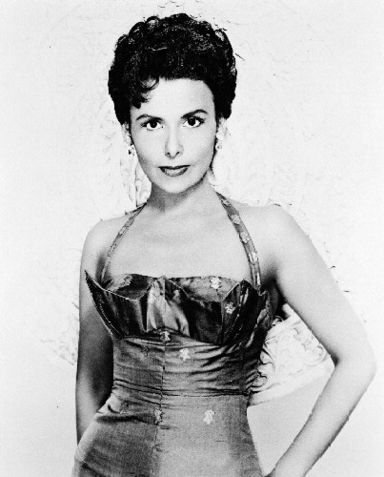 Over the past few months we’ve suffered the loss of pioneers the likes of who we’ll never see again: Benjamin Hooks, Dorothy Height, and now Lena Horne: she certainly deserves a place alongside those lauded blacks activists if onlyl because one could chart the progress of black civil rights in this country through the trajectory of her career. It’s unthinkable that a Diana Ross, a Halle Berry or a Viola Davis would today suffer the trials Horne did. She was a major MGM film star exiled from interaction with her white co-stars who nonetheless shone in such films as Panama Hattie, Ziegfeld Follies, Words and Music (where the lady was definitely a tramp) and Till the Clouds Roll By. It must have felt like a deal with the devil, and the times: her stand-alone sequences were clipped from those films when they showed in the South, depriving Southerners of the realization that the only threat was that of a bountiful talent without an outlet. One would come with her ascendance in top U.S. nightclubs, the release of matchless vocal recordings, television appearances that probably advanced the cause of civil rights as effectively as any picket line, and her too-brief sojourns on the Broadway stage—a Tony-nominated turn in Jamaica with Ricardo Montalban, and a Tony-winning one in Lena Horne: The Lady and Her Music. During that time, she worked tirelessly alongside Harry Belafonte and others to drag white America into the modern age of equality for all races. Her talent was a product, and a victim, of her times; her death leaves us to wonder what might have been had the times been different. RIP.
Over the past few months we’ve suffered the loss of pioneers the likes of who we’ll never see again: Benjamin Hooks, Dorothy Height, and now Lena Horne: she certainly deserves a place alongside those lauded blacks activists if onlyl because one could chart the progress of black civil rights in this country through the trajectory of her career. It’s unthinkable that a Diana Ross, a Halle Berry or a Viola Davis would today suffer the trials Horne did. She was a major MGM film star exiled from interaction with her white co-stars who nonetheless shone in such films as Panama Hattie, Ziegfeld Follies, Words and Music (where the lady was definitely a tramp) and Till the Clouds Roll By. It must have felt like a deal with the devil, and the times: her stand-alone sequences were clipped from those films when they showed in the South, depriving Southerners of the realization that the only threat was that of a bountiful talent without an outlet. One would come with her ascendance in top U.S. nightclubs, the release of matchless vocal recordings, television appearances that probably advanced the cause of civil rights as effectively as any picket line, and her too-brief sojourns on the Broadway stage—a Tony-nominated turn in Jamaica with Ricardo Montalban, and a Tony-winning one in Lena Horne: The Lady and Her Music. During that time, she worked tirelessly alongside Harry Belafonte and others to drag white America into the modern age of equality for all races. Her talent was a product, and a victim, of her times; her death leaves us to wonder what might have been had the times been different. RIP.
